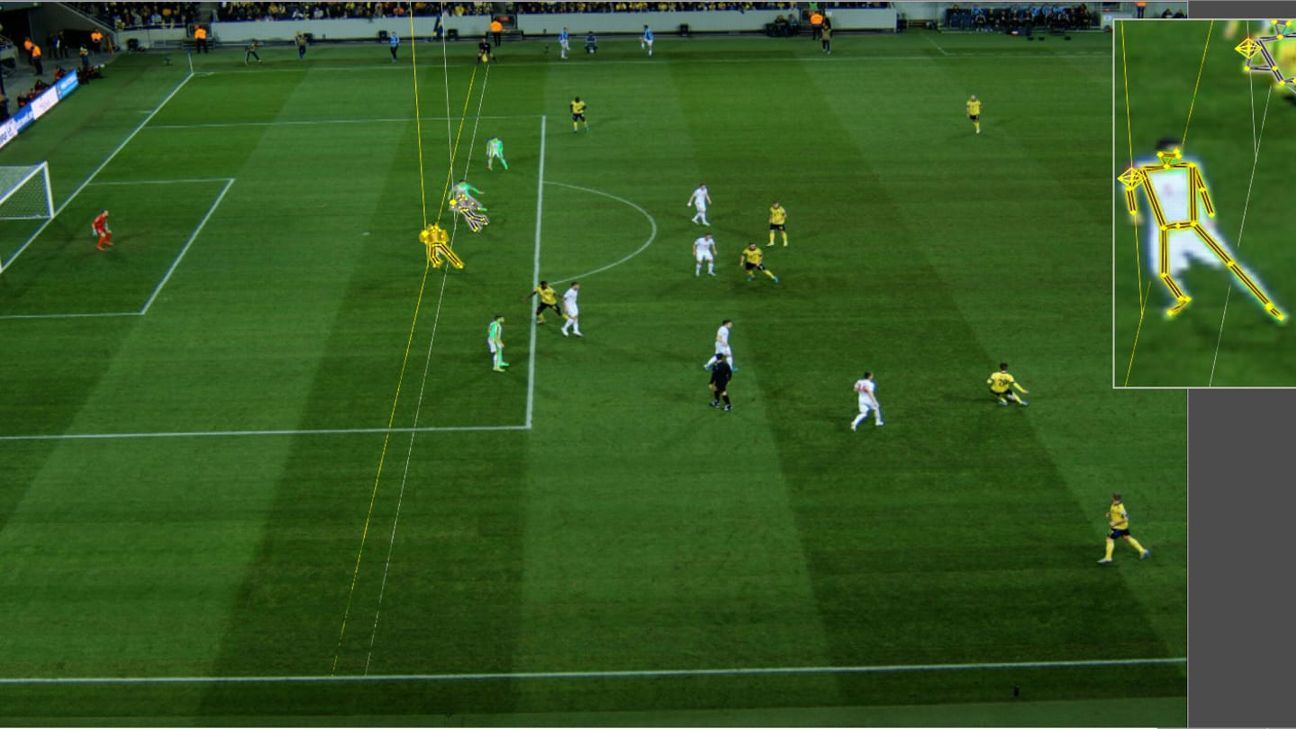Products You May Like
FIFA is to push ahead with trials of Artificial Intelligence-driven semi-automated VAR offside technology, aimed at speeding up the process and making it more accurate.
Three technology providers will move into the next development phase in 2021, with FIFA hoping it can be rolled out fully by 2022 and be used at the Qatar World Cup.
VAR offside has caused huge controversy across all the top European leagues, with players having goals disallowed due to being millimetres ahead of the last defender, even though there is clear doubt over the system’s reliability.
The availability of the correct frame to show the point the pass was made, as well as the subjective nature of the VAR manually placing measurement points on each player, means no two VAR offside decisions can offer the same level of accuracy.
– Bamford offside & other VAR controversies
– How VAR decisions have affected every club
The time taken to make an offside decision, in some cases in excess of four minutes, has also been criticised but the semi-automated VAR offside technology would aim to cut this down to seconds and “provide the VAR with additional and more accurate information to assist the decision-making process of the referee and to make the review process as efficient as possible.”
Sweden-based company ChyronHego is leading the development using its Emmy Award-winning optical tracking system.
The first offline tests with limb-tracking and automated ball detection technology were held at the 2019 FIFA Club World Cup. Solutions to improve the accuracy of the kick point include tracking data from sensor technology and video data from camera systems, while a player’s skeleton will be modelled to be precise to the tip of a player’s boot.
“The goal is to develop a supportive tool similar to goal-line technology: Not designed to make the decision, but to provide evidence instantly to the referees,” Johannes Holzmuller, FIFA’s director of football technology & innovation, said.
While the technology would provide the images, the VAR would still determine if the correct player was being used and that the player was active for offside.
World football’s governing body created Working Group of Innovation Excellence in 2019, featuring representatives from 13 competition organisers around the world, with three primary objectives: semi-automated offside technology, low-budget VAR system to be used in leagues which cannot afford the full-grade version, and improved communication to fans.
The group is also discussing ways to improve the visualisation of the close offside incidents which have caused so much controversy.
